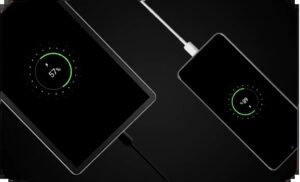How long does an Android battery last? It’s a question that has puzzled countless smartphone users. We rely on our Android devices for everything from communication to entertainment, so it’s essential to know how long we can count on them before needing to recharge. In this article, we’ll delve into the factors that affect an Android battery’s lifespan and provide practical tips to extend its longevity. By the end, you’ll have a clear understanding of how to make the most of your Android battery, ensuring that it lasts as long as possible. So, let’s jump right in!
How Long Does an Android Battery Last?
One of the most common concerns among smartphone users is the battery life. After all, what good is a feature-packed phone if it dies on you before the day is even over? If you own an Android device, you might be wondering, how long does an Android battery last? In this article, we will explore the factors that influence Android battery life, tips to prolong battery longevity, and ways to optimize your device’s battery usage.
Factors Affecting Android Battery Life
The duration for which an Android battery lasts can vary significantly depending on several factors:
- Battery Capacity: The capacity of your Android device’s battery is measured in milliampere-hours (mAh). Generally, a higher mAh rating indicates a larger battery capacity, which typically translates to a longer battery life.
- Screen Size and Resolution: Larger screens with higher resolutions tend to consume more power, as they require more energy to illuminate a greater number of pixels.
- Processor and Performance: Android phones with more powerful processors and higher performance capabilities tend to consume more battery power. This is especially true when running resource-intensive applications.
- Operating System and Software: Android operating system updates often come with battery optimization improvements. Additionally, certain apps and services running in the background can drain the battery faster.
- Network Connectivity: Constantly connecting to mobile data, Wi-Fi, or Bluetooth can contribute to battery drain.
- Usage Patterns: How you use your Android device plays a significant role in battery life. Activities such as gaming, video streaming, and using GPS navigation consume more power compared to browsing the web or reading e-books.
Tips to Prolong Battery Longevity
While you cannot change the inherent hardware limitations of your Android device’s battery, there are several measures you can take to prolong its overall longevity:
1. Adjust Screen Brightness
Reducing the brightness of your Android device’s screen can have a noticeable impact on battery life. Consider manually adjusting the brightness or enabling the adaptive brightness feature, which automatically adjusts the screen brightness based on ambient lighting conditions.
2. Use Wi-Fi Instead of Mobile Data
Whenever possible, connect to a Wi-Fi network instead of relying on mobile data. Using Wi-Fi consumes less power since it requires lower signal transmission compared to mobile data networks.
3. Disable Unnecessary Connectivity Features
Turning off features such as Wi-Fi, Bluetooth, and NFC when not in use can save significant amounts of battery power. These connectivity options constantly search for networks or devices to connect to, which drains the battery.
4. Close Unused Apps
Make it a habit to close or force-stop apps that you are not actively using. Many apps continue to run in the background and consume battery power even when you are not actively using them.
5. Enable Battery Saver Mode
Most Android devices offer a built-in battery saver mode that reduces the device’s performance and limits background activities to conserve battery power. Enable this mode when your device’s battery is running low or for extended battery life when needed.
6. Manage Sync and Push Notifications
Constantly syncing your Android device with various accounts and allowing push notifications for every app can drain your battery. Consider disabling unnecessary sync options and limit push notifications to essential apps only.
7. Optimize Display Settings
Adjusting the screen timeout duration to a shorter time period can help conserve battery power. Additionally, reducing the sleep time before the screen turns off when not in use can contribute to battery savings.
8. Update Apps and System
Regularly updating your apps and operating system is crucial for not only security reasons but also to benefit from potential battery optimization improvements offered by developers.
Optimizing Android Battery Usage
Beyond following the tips mentioned above, there are additional ways to optimize your Android device’s battery usage:
1. Check Battery Usage Statistics
Android devices typically provide a built-in feature to monitor battery usage. By accessing the battery settings, you can identify the apps and services consuming the most battery power. This information can help you make informed decisions on which apps to optimize or reduce usage.
2. Use Battery Optimization Settings
Android devices often have built-in battery optimization settings that allow you to control the background activities of individual apps. You can find these settings under the battery or power management section in your device’s settings. Enabling battery optimization for specific apps can extend battery life.
3. Utilize Power-Saving Apps
There are numerous power-saving apps available on the Google Play Store that claim to optimize battery usage. These apps often come with additional features like CPU management, automated settings, and battery usage analysis to help you further extend your Android device’s battery life.
4. Consider Battery Replacements and External Chargers
If your Android device’s battery life has significantly deteriorated over time, you might consider replacing the battery. Additionally, external portable chargers or power banks can be handy for charging your device on the go.
Remember, while these tips and optimizations can help extend your Android device’s battery life, it is important to find the right balance between battery longevity and the functionality you require from your device.
Frequently Asked Questions
How long does an Android battery last?
An Android battery’s lifespan depends on various factors such as usage patterns, battery capacity, and device settings. Here are some frequently asked questions regarding the duration of an Android battery:
1. What is the average lifespan of an Android battery?
The average lifespan of an Android battery is typically around 2 to 3 years. However, this can vary depending on how the device is used and maintained.
2. How long does an Android battery last on a full charge?
The duration of an Android battery on a full charge can vary based on usage. Generally, modern Android devices can last anywhere from 8 to 24 hours on a full charge.
3. Does battery usage differ for different Android models?
Yes, battery usage can vary across different Android models. Factors such as the device’s processor, display size, and battery capacity can affect how long the battery lasts on each specific model.
4. What can impact the battery life of an Android device?
Several factors can impact the battery life of an Android device, including screen brightness, app usage, connectivity (Wi-Fi, Bluetooth, GPS), background processes, and running resource-intensive apps or games.
5. Can I extend the battery life of my Android device?
Yes, there are several ways to extend the battery life of an Android device. These include reducing screen brightness, disabling unnecessary background processes and location services, managing app usage, and optimizing battery settings through built-in battery-saving modes.
Final Thoughts
In summary, the battery life of an Android device varies depending on several factors such as usage, settings, and hardware specifications. On average, an Android battery can last anywhere from 8 to 24 hours before requiring a recharge. Factors like screen brightness, background apps, and internet connectivity can significantly impact battery life. To maximize the lifespan of your Android battery, it is recommended to adjust settings such as screen timeout, disable unnecessary notifications, and optimize power usage through battery-saving modes. By being mindful of these factors, you can ensure that your Android battery lasts for a reasonable duration.



